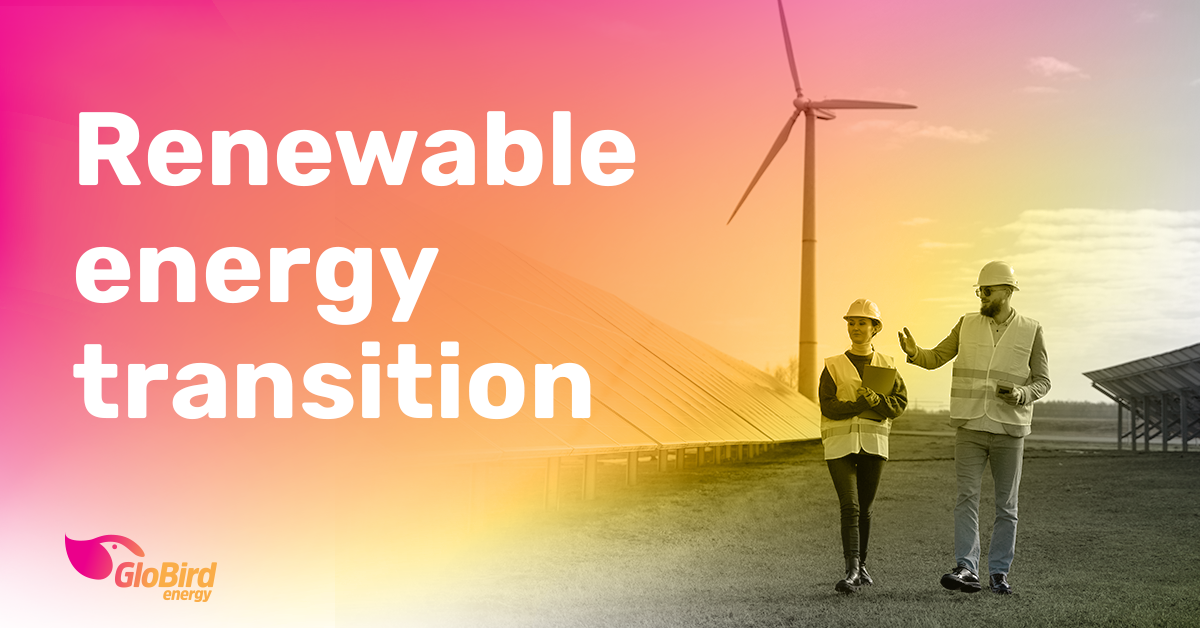Australia is in the process of transitioning to a low-carbon energy system and we’re all along for the ride, whether we’re involved in the industry or not.
Of course, the major impacts of the energy transition are to the way energy is generated, transmitted, stored, and exported, but with all that there’s also a transformation to the way energy is used, which impacts everyone.
Another part of the extensive changes to our energy system is the roll out of large-scale infrastructure, which can also present some challenges for communities.
In the second half of last year, CSIRO undertook a large national survey, in collaboration with the Department of Climate Change, Energy, the Environment and Water (DCCEEW), to better understand Australian perceptions of the energy transition and, in particular, perspectives towards large-scale renewable energy infrastructure projects.
Results from the survey are being used to inform planning, programs, and other initiatives undertaken by government, industry, and communities as part of the energy transition.
CSIRO is also looking to monitor Australian attitudes toward the renewable energy transition as it rolls out over time, so this survey is also contributing to that.
About the survey
This survey of Australian attitudes toward the renewable energy transition is the largest, most comprehensive, and representative national survey in Australia focusing on the renewable energy transition and different types of renewable energy infrastructure.
More than 6,700 people across all states and territories were surveyed between August and September 2023 to capture representative views of Australians 18 years and over.
The survey collected data from people aged 18 and over living in metropolitan and regional areas, and from people already living near renewable energy infrastructure.
The participants were relatively evenly split into three age groups: 18-39, 40-59, and 60+, with about two-thirds of those surveyed living in cities and one-third in regional areas.
Affordability remains a priority
It’s probably fair to say that the major findings of the survey surprised nobody.
For example, affordable energy is important to most people, with 82 per cent of those surveyed ranking it in their top three priorities. Energy self-reliance, emissions reductions, and reliability were ranked next most important, in that order.
Most participants expressed support for the change toward an energy system that relies more on renewables, although opinions varied regarding the speed and extent of the transition. Almost half (47 per cent) of those surveyed said they would prefer a moderate-paced transition scenario, but almost as many wanted faster and more extensive change (40 per cent). Only 13 per cent suggested they would prefer a slower transition.
People living in regional areas appeared to have stronger negative feelings toward the transition, possibly because they’re more likely to live closer to current or proposed renewable energy projects.
Acceptance of energy infrastructure
One of the areas the survey explored was how Australians feel about the major elements of renewable energy infrastructure, primarily solar and wind farms and transmission lines.
While there was a general acceptance (or, at least, tolerance) of renewable energy generation technologies, many respondents expressed reservations about transmission lines.
When considering a hypothetical scenario, more than 80 per cent of Australians would, at least, tolerate living within 10 km of renewable energy infrastructure.
Solar farms had the highest level of acceptance, although attitudes to solar farms were less favourable in 2023 (88 per cent would at least tolerate living near a solar farm) compared with an earlier survey conducted in 2020 (95 per cent).
More than 80 per cent of people surveyed would at least tolerate or be okay with living near a windfarm. However, those living in proposed offshore windfarm regions were more likely to reject living near them.
Acceptance of living near associated transmission lines was lower than other forms of renewable energy infrastructure, with 23 per cent of people rejecting it and 77 per cent at least tolerating it.
Information is a vital component
It was also unsurprising that those surveyed reported that they want more information so that they can better understand what’s going to happen and how it might impact them.
For example, the survey responses suggested that when people believe that a piece of infrastructure has an important role in the energy transition, they’re much more likely to accept it.
The survey indicated that communities want comprehensive, transparent information on renewable energy infrastructure developments, their benefits, and any potential drawbacks, particularly any potential impact on the local environment, communities, and individuals.
That was particularly evident in relation to transmission lines, with people expressing concerns about how they would reduce the visual attractiveness of local landscapes and devalue property.
However, there were also relatively low levels of reported knowledge about solar farms and concerns were raised about potential environmental impacts including waste created when panels reach the end of their useful life.
We’re all in it together
Interestingly, the survey suggested that people have some concerns about how the “burden” of any potential negative impacts might be shared across the community. There was a feeling that as long as no communities or regions were worse off than any others due to the location or operation of energy infrastructure, we could all tolerate the changes, as they are necessary.
CSIRO noted that, as with other industries, good governance, trust and procedural fairness underpinned social acceptance of renewable energy infrastructure.
Which, to some extent, reinforces our philosophy here at GloBird Energy: knowledge is power.
The more we can research, investigate, consider, plan for, and explain what is happening or going to happen, the better for us all, as a community.
Being wary of something we don’t understand is not just human nature, but it’s a crucial part of our need for checks and balances and a feeling of being included, considered, and valued.
* You can download and read the survey highlights or the full reports (in PDF format) from the CSIRO website here.
